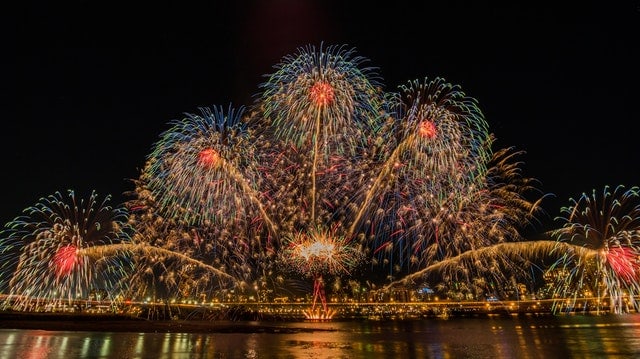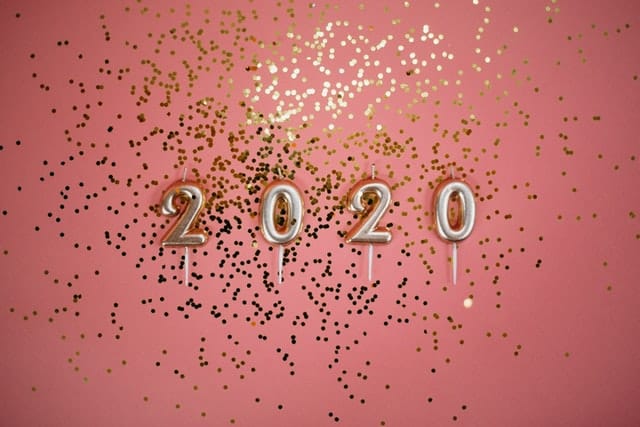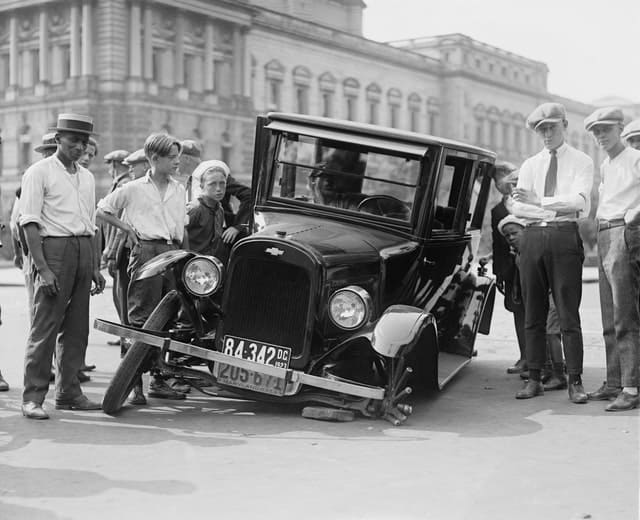The eve of a brand new year and a Googleplex (that`s a really ridiculously large number) of futile, never-to-be-realized promises to ourselves (and that’s known as a New Year’s Eve resolution) will be made across the nation. Thanks to the power and immediacy of social media, many of these will be forever enshrined instantly within a tweet, a status or even an Instagram post, but nobody really holds anybody accountable. Maybe, only ourselves, and, most of the time, we can always just put it off for a year, when our busy lives finally give us the time to do it properly… and other such lame excuses.

Obviously, everything has a flip-side, and there will be those who make a simple yet firm promise just to themselves – to be healthier, to be happier, to take a deep breath when angry… In some way, however small it might be, to resolve to live a better, more positive life. And they get on and do it too.
“If I can’t stay where I am, and I can’t, then I will put all that I can into the going.” – Jeanette Winterson, CBE, English author and writer
Some people and they’re on both sides of the coin, resolve to do something about their ongoing substance abuse. For some of these, it’s all forgotten come New Year’s Day, and they reach for that drink or that hit, having well and truly forgotten their “firm” resolution made less than 24 hours previously. Others, however, realize the importance of this life-changing resolution, one that will begin to tackle and resolve a serious problem (and a medically-recognized, chronic, relapsing brain disorder) that has been plaguing them for many years, affecting every single aspect of their lives – for the worse. And they too get on and do it, however hard those early days are. Yes, there will be some people, spread far and wide across the same nation, that make that promise, that resolution to themselves – to put all they have, mentally, physically and spiritually, into their recovery from addiction. They try to really make their lives better and more positive, as hard as that might be.
“To forgive is to refuse to contaminate the future with the errors of the past.” – Craig D. Lounsbrough, U.S. Professional Counselor & Life Coach

This article – “New Year’s Eve: Resolutions, Relapses, Revelry & Recovery” – will endeavor to provide you with as much professionally-sourced advice as possible as to how you can best achieve that resolution, that promise you have made to yourself. Obviously, we acknowledge that one written article is not going to change your life, because that, however ever hard it gets (and it will be hard), recovery is predominantly down to you. Maybe, however, we can be that helping hand, that shoulder to lean on when days seem too difficult to bear, when it may appear easier to reach for whatever has made you so sick, both mentally and physically, and spiritually too, in the first place. A little inspiration and a little guidance, then. It’s important to remember when you embark on your resolution, your promise, you are never alone.
A Brief History of New Year’s
So why do we celebrate New Year’s Eve in the first place? And where did drinking huge quantities of alcohol or getting wasted on your drug of choice come into it? If you look around the world at the multitude of cultures, you’ll find a plethora of ways to mark the end of one year, and the beginning of another. From eating 12 grapes (no more, no less) at midnight, to wearing a specific color of underwear (yes, really…), and on to the tradition of the resolution. However, many cultures (those that drink alcohol, obviously) mark the occasion with a toast to the New Year itself, and to their family, friends and other loved ones. It all started with the Romans, as much of our traditional way of doing things first emanated. Back in ancient Rome, it was customary (and considered healthy) to drink a toast to the emperor of the day before every meal. The phrase “to toast” comes from the 17th. Century, when it became customary to put (yes, you’ve guessed it…) a piece of toast or a crouton in the glass itself with the chosen drink. This pairing of a drink accompanied by a nibble slowly became known as a toast. History shows that in the U.S., the settlers would make a toast to their new home, often as a patriotic affair – they had 13 toasts, one for each new state founded. Once these new Americans became wealthy, in the 19th century, they followed the French custom of using champagne for their celebrations, as a symbol of their forthcoming prosperity during the next year.

New Year’s Eve… Today
So where has all this history and custom led us? Today, New Year’s Eve is considered to be one of the most dangerous times of the year in the U.S. – thanks, in the most part, to those who drink and subsequently drive. The U.S.death rate shows a noticeable spike at a time when the whole nation is looking forward to health and accompanying prosperity. As we know, money is no use whatsoever when you’re dead.
The Spike in ER Visits from Alcohol Poisoning
Binge drinking is an exceptionally serious problem at New Year’s. According to the Centers for Disease Control & Prevention (CDC), binge drinking is the most common, most costly and most deadly example of excessive alcohol use. Furthermore, according to the National Institute on Drug Abuse (NIDA) in 2009, emergency room visits and admissions for people aged 12-20 related to alcohol (either accidents or poisoning itself) rose by an astonishing 250% on New Year’s Day, as a direct result of drinking the night before. People who begin to suffer from alcohol poisoning require emergency medical attention; they may not display all of these symptoms listed below, but one or two can mean a potentially fatal condition. Symptoms of alcohol poisoning include:
- Confusion or delirium
- Vomiting
- Reduced, irregular, or slowed breathing
- Hypothermia
- Cold, clammy, or blue skin
- Falling unconscious or passing out
- Coma

The Spike in Fatal DUI Accidents
Every year, around 95 million U.S. citizens will take to the roads and interstates during the holiday season, including New Year’s Day. The sad thing is, for many of these people, they can be involved in a fatal DUI accident without touching a drop of alcohol themselves the night before. According to the National Highway Traffic Safety Administration (NHTSA) drunk driving accidents in December 2015, were nearly 4 times higher at night than during the day, highlighting that many people who went to celebratory events, such as a New Year’s Eve party, attempted, sometimes with fatal consequences, to drive home after consuming alcohol.
The Spike in Other Alcohol-Related Health Problems
It isn’t just alcohol poisoning or a near-fatal car accident caused by a drunk driver that gets some people admitted to the ER or needing an unscheduled doctor’s appointment. Here are just a few of these type of issues:
- Memory Impairment or Loss: Serious memory problems can occur with excessive drinking. Once a person has a blood alcohol concentration of 0.22%, there is then a 50% chance of them having a “blackout” – a partial or full memory loss of previous events.
- Physical Injury: Even if a person does not drive while drunk, they are at an increased risk of accidents while intoxicated, eg. more likely to fall and cause themselves bodily injury.
Additionally, their reduced inhibitions may lead to unprotected or nonconsensual sex, and possibly HIV or an STD infection. Lastly, those with chronic health conditions, eg. diabetes, high blood pressure, or heart disease, may find these conditions severely worsened, which could mean again that visit to the ER.
- Crime*: People are more likely to commit a public disorder offense, such as vandalism or urinating in a public place, when drunk. In fact, under the effects of alcohol or drugs, people are more likely to simply commit a crime in the first place, maybe even theft or assault.
*We understand this in itself may not be a health issue – however, being in prison might be, and getting yourself shot by the police definitely is. 
Increasing Alcoholism Rates in the U.S. and, specifically, in Washington State
As our brief history of New Year’s Eve clearly demonstrates, the traditional celebration is usually well and truly soaked in alcohol. However, the recent past has shown that consuming alcohol to excess is becoming more widespread and more problematic across the entire nation, and this change in drinking habits is regardless of demographics – male or female, young or old, and so on. Here are just a few proven statistics that demonstrate alcohol’s increased grip on all of U.S. society:
- According to an in-depth study of alcohol use disorders (AUD), alcoholism rates rose by an astonishing 49% during the first decade of this century.
- That means that, by 2010, 12.7% of the U.S. population met the official diagnostic criteria for an AUD – that’s a deeply concerning ratio of 1 alcoholic in every 8 U.S. adults.
- Furthermore, according to the U.S. Centers for Disease Control and Prevention (CDC), around 88,000 U.S. citizens a year will die of alcohol-related causes – more than twice the number of people who die from opiate overdoses, and now considered a national epidemic and health crisis.
- Lastly, every 50 minutes a person will die in a DUI-related motor vehicle accident in the U.S. every single day. That’s 29 people every normal day. During the holiday season, that figure rises.
How Does Washington State Compare?
Sadly, when you compare the various effects of alcohol consumption for Washington state to the nation as a whole, the ratio of AUDs and other levels of excessive alcohol consumption (including binge drinking and DUIs) per capita is actually higher. Look at particular counties within Washington state, and the statistics become even worse. For example, in Ferry County, WA, fatal motor accidents that involve alcohol stand at 63% – far higher than the national average.
How to Avoid Relapse on New Year’s Eve
One year draws to an inevitable close, becoming the recent past, and immediately, a brand new year begins, presenting us with 365 days-worth of possibilities and potential opportunities. To some, that can actually be a little daunting, especially if they are in the early stages of recovery from substance addiction, when their levels of self-esteem and self-confidence may not be in the best of shape. Our advice? One day at a time, and no more. Yes, you can set long-term goals and objectives, but you’ll never realize these unless you take these early days of recovery one day at a time. And, of course, at this time of year, you have New Year’s Eve to negotiate first. Below, you’ll find professionally-sourced advice and practical tips on how you can avoid relapse as New Year’s Eve celebrations.
“One big secret about succeeding in the New Year lies in concentrating more on things that matter most in life, and walking away from those things that are of no value or use.” – Bamigboye Olurotimi, African writer
As we have demonstrated above, New Year’s Eve is a dangerous time, whether you are simply driving your young family to a nearby friend’s celebration, or you are a recovering addict, just looking to make it through to the morning without returning to your harmful, substance-riddled days of the past. However, with the correct preparation and planning, you’ll have no fears when it comes to that clock counting down – in fact, it’s vital for you to remember that it is possible to stay clean and sober on New Year’s Eve. Just remember the old adage – failing to prepare is… you know the rest. The journey to a long-lasting recovery from substance addiction is a road successfully traveled by many – millions and millions, in fact. However, that doesn’t mean to say the journey has been a smooth one, roadwork-free, with light traffic – to take the road analogy a little further. Many of those who make it a successful journey have had the odd flat tyre, but they’ve fixed it (and had help, if needed), and subsequently moved on.

What are the Most Common “Holiday Season” Addiction Triggers?
Increased levels of anxiety and stress are very common during the holiday season – however, so is substance abuse. In fact, this time of year is infamous for binge drinking and the use of party drugs. For some, it’s just a way to cope – the self-medication scenario. By far, the most common triggers to a return to addictive substance behavior (and, as you can see, all related to anxiety and stress too) are these:
- Social Situations: Holidays disrupt our normal routines, such as getting up for work, family commitments, and so on. This, in itself, can cause unnecessary stress, and thus, an increase in the risk of relapse triggers for those in recovery.
- Family Pressures: Families, as much as we may love them, tend to speak their mind and usually aren’t too concerned with how we deal with any oncoming harsh criticism, especially if they’ve indulged in substances themselves. For the recovering addict, this can result in heightened feelings of unnecessary guilt and shame.
- Increased Financial Costs: A rather obvious one, this, but just consider the pressure that it places on the recovering addict. Like Christmas Day itself, for example, spending too much is seen as a tradition by most. For the recovering addict, this unnecessary stress is certainly not welcome at a time when they may already be feeling under pressure from other commitments.
Your Essential Preparation & Planning
Here is our preparation and planning advice for making sure you keep to that road on New Year’s Eve – and for all the days that follow that include the holidays or specific celebratory events:
Before…
- The Journal – If you don’t already keep a journal, start one. Today. For the recovering addict, a journal is the perfect way to record your thoughts and feelings as you progress through your recovery – both good and bad. It is an exceptionally valuable way for you to maintain an ongoing list of your potential relapse triggers – those group of negative moments, situations, places, people, etc. associated with your substance abuse that can provoke a relapse.
- The Support Network – Everyone in recovery needs a support network – very, very few former addicts make it alone. Your support network can include supportive family members, friends, your sponsor (if you have one, fellow support group members (such as AA and NA) – in fact, anyone who you can reliably turn to to help you through a difficult time, especially when a relapse is possible.
- The Helpful You – One of the best ways that recovering addicts can stay clean and sober over the holiday season is to help others who are also in recovery from substance addiction. Whether it’s simply spending time with other recovering addicts, or actually volunteering with a charity that assists recovering addicts, the simple act of helping others is a great way to help yourself, especially as a way to keep you focused on your own recovery.
- The Lonely – Of course, there is a realistic chance that not one invitation will arrive on your doormat, in your mailbox, or via Facebook, Whatsapp, or an SMS. If that’s the case, and you know that loneliness can be a potential relapse trigger for you, do one or more of the following:
-
- Connect with your sober friends
- Be the “Helpful You” (as described above), by either helping other recovering addicts or by volunteering
- Find a New Year’s Eve recovery event, aimed at those in exactly the same position as you (a quick Google search will reveal plenty of options around the Seattle area)
During…
- The Refusal – If you have been invited to an event, either with family or friends, where you know there will be substances available, and there is a likelihood you will be pressured into drinking or using, simply say “No, thanks,” and don’t go. You are not obliged to attend any event, and you are certainly not obliged to put your recovery at risk for the sake of temporarily hurting someone’s feelings. Your recovery is far more important to you than that.
- The Sober Friend – Your support network is a crucial and vital element of your addiction recovery. Having a clean and sober friend to accompany you to an event can make the world of difference. They will offer moral support, but also keep you accountable.
- The Polite Excuse – Always have a pre-planned, polite excuse for leaving, if an event becomes problematic for you, such as your need to attend another event.
- The Taxi Service – Be your own taxi service by driving to an event in your own car, especially if you have traveled with the sober friend mentioned above. In addition to giving you the freedom to leave at a time of your own choosing, driving yourself (and others) will also keep you accountable.
After…
- The Support Network/Groups – In addition to your support network, a support group, such as AA/NA or another, is essential in a successful addiction recovery. Continue attending meetings throughout the holiday season, and don’t stop simply because the New Year’s celebrations are over. Although you may not be aware of it, and maybe even feel very satisfied with yourself for remaining relapse-free, you can still be at risk. A support group can help you process how you were able to cope, what you have learned, and so on. Sharing your experiences with others can help them as much as you.
And so, to share with all those in recovery preparing for the arrival of a brand new year… Stay safe.
“New year, same me. I’m just going to get better.” – Avina Celeste, writer
